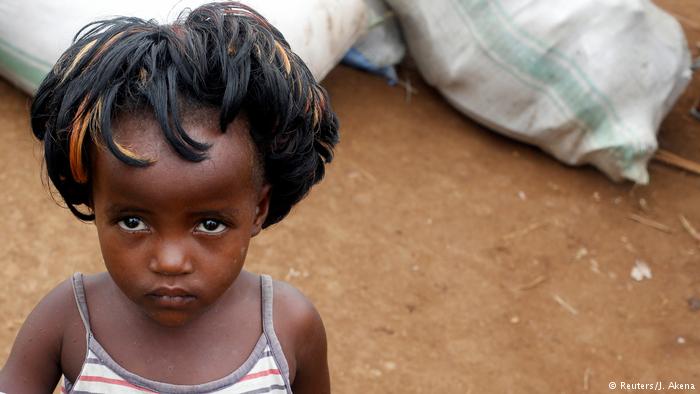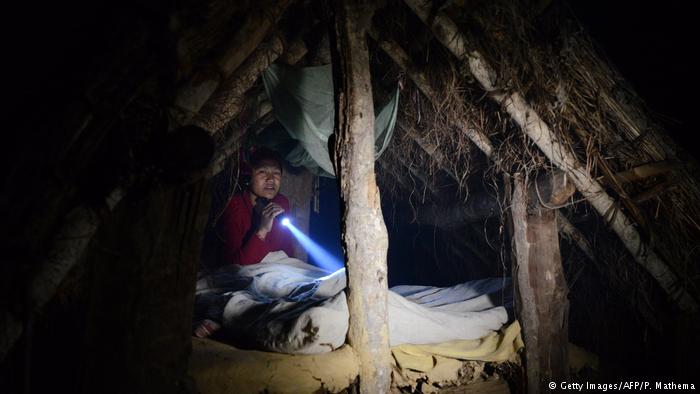The Monthly Exiles
 Five days ago, Sita Karki, 14, was forced into isolation in a filthy, dark and sweltering cattle shed about 10 minutes away from her home. The reason is that she is menstruating.
Five days ago, Sita Karki, 14, was forced into isolation in a filthy, dark and sweltering cattle shed about 10 minutes away from her home. The reason is that she is menstruating.
Sita is one of thousands of girls and women in rural Nepal who every month are banished from their homes for five to eight days as part of a customary practice known as ‘Chhaupadi pratha‘. (Chhaupadi combines the words ‘chhau’ which translates as “untouchable” and ‘padi’ which means “being”.) The custom comes from a superstitious belief that during menstruation women are “impure” and “untouchable” and that her family with be visited by death and destruction if the taboo is broken because the gods will be angered.
During their temporary banishment, the girls and women have to adhere to certain rules. For example, they are not allowed to enter their own courtyards. They are not allowed to touch men. They are only allowed to eat rice and other dried foods. They are forbidden from eating dairy products and meat as there is a fear these might be marred forever. They are not allowed to go to temples or attend religious functions. They are not even allowed to participate in daily household chores.
Since many women are confined in unsanitary conditions for several days a month, they are at risk of diarrhea or respiratory illnesses. They are also subject to attacks by snakes and other animals. Finally, they run the risk of abuse and even rape, with grave psychological and physical consequences.
The Supreme Court of Nepal actually outlawed chhaupadi isolation in 2005, but the practice continues in both rural and urban communities. In cities, women are not banished to cattle sheds but to separate rooms so that she maintains a safe physical distance from her family members. The other restrictions are the same.
The silence and stigma that surrounds menstruation impinge on girls’ everyday lives. By stigmatizing a woman’s natural cycle, society puts constraints on the potential, action and participation of girls and women. Locking up women’s bodies is also an attempt to lock up their minds.
Changing this age-old tradition supported by both religion and society poses a challenge. Discriminatory gender norms, patriarchal societal values and high illiteracy rates play a very detrimental role. The fact that many women accept and perpetrate the practice is evidence of how deep rooted it is.
However, times are changing and the government, as well as many NGOs and activists are committed to ensuring that the practice is abolished and not only officially.
Menstruation is a normal biological phenomenon. Every woman has a right to spend her monthly period in hygienic and dignified conditions. This right cannot be violated in the name of religion, tradition or culture.
Everyone should understand that women have the power to procreate only because of menstruation. Everyone should honor the body that goes through months of suffering to give life.
Menstruation is not a taboo but a power.
Author: Preeti Shakya
Editor: Marjory Linardy
_____
WTO RECOMMENDS
Maiti Nepal – Giving Hopes and Dreams for Many Girls
Sita’s face beams with happiness as she dances (picture). After enduring severe hardship, a group of Nepali girls are now on a tour performing traditional dance across Germany, Austria and Switzerland. DW takes a look at how the Maiti organization offers them aid and shelter. (From September 26, 2015)
Nepali Women – Caught in a Terrible Vortex
Dhankumari, 57, lost her belongings and livestock in the killer earthquake that shattered her home on April 25. After the next tremor on May 12, she is even more worried. She is only one of many. Thousands of women and children are affected by Nepal’s devastating earthquake and do not know how to continue with their lives. Relief workers warn of the threat posed to these women by sex traffickers. (From May 29, 2015)
Women in India protest menstruation taboos with #Happytobleed campaign
A machine to check for menstruating women – this was a Hindu priest’s suggestion after being asked why women were being kept off his temple’s premises. The statement triggered an online campaign called #Happytobleed. (From December 1, 2015)






